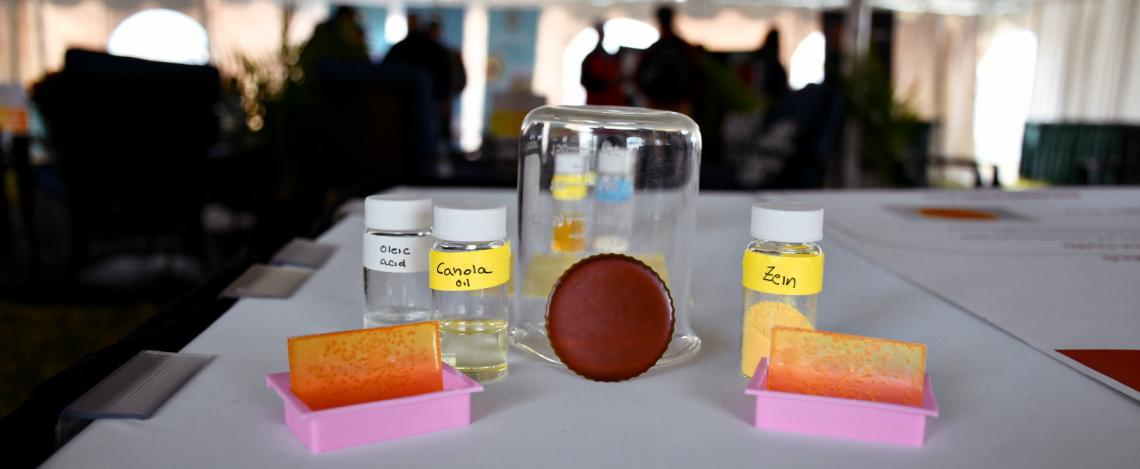Scientists one step closer to a sustainable bale wrap

University of Guelph researchers have reached the “holy bale” in their quest to create a biodegradable alternative to about 3,500 tonnes of petroleum-based plastic hay bale and silage wrap used in Ontario each year.
Dr. Erica Pensini, an engineering professor in the College of Engineering and Physical Sciences, and Dr. Alejandro Marangoni, a food science professor in the Ontario Agricultural College, have worked with local farmers since 2021 to field-test spray-on and prefabricated silage films they developed from corn proteins.

As those trials continue, the team members are turning their attention to creating a similar product that could replace the low-density polyethylene plastic bale wrap commonly used now.
“Wrapping bales has been the most challenging part of our research because it requires making stretchy materials,” Pensini said. “Now, we are quite excited because we recently have been able to fabricate exactly the materials we needed.”
Their recent findings were published in the Journal of Applied Polymer Science.
While the team has found a successful formula based on epoxidized soybean oil and oleic acid (derived from vegetable oils), they can produce only a small amount of material in their laboratory oven.
“Since we are a research lab rather than an industrial facility, we have a fairly small oven, and we have to figure out ways to upscale so that we can produce more material,” said Pensini.
Farmers who supported the field trials have helped the team make key connections with companies interested in bio-based films.
Pensini hopes these industry connections will help increase production. “We would like to try and produce larger quantities of our stretchy material and identify ways to simplify the production process.”
Beyond helping the researchers make industry connections, working directly with farmers is essential for testing the biomaterials’ strength and durability. That connection also helps in identifying issues—for example, researchers had to refine the spray-on formula when a previous version attracted rodents.
On-farm trials will also ensure the new sprays and wraps can integrate into existing machinery and systems.
The project has brought together partners from the Ontario Ministry of Agriculture, Food and Rural Affairs (OMAFRA) and the industry group Livestock Research Innovation Corp.
Pensini said the collaboration means researchers are a step closer to providing a more sustainable and environmental hay bale wrap for Ontario’s farmers.
“Plastics can end up in animal feed and crop fields, leading to microplastics, and their disposal is problematic for farmers who operate out of remote farms. Using bio-based plastics would resolve these issues,” she said.
Funding for this project has been provided by the Beef Farmers of Ontario, Dairy Farmers of Ontario and the Ontario Agri-Food Innovation Alliance, a collaboration between OMAFRA and the University of Guelph.